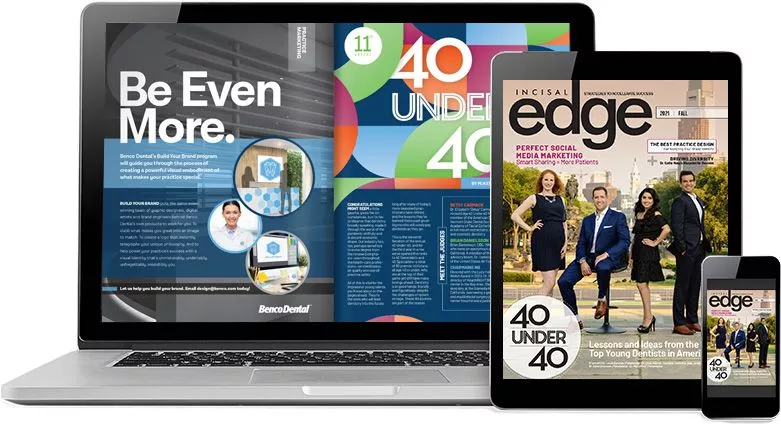Reducing one’s carbon output is a commendable goal for any business, but for one Wisconsin practice, it’s just the latest step in the relentless pursuit of responsibility and transparency.

Dr. Nicole Andersen
GIVEN THE PANDEMIC, it’s perfectly understandable that businesses worldwide have postponed their most costly or ambitious plans until better times. Madison, Wisconsin’s Artisan Dental, however, isn’t one of them. Already a Certified B Corporation—a designation of social responsibility they received in 2017—and committed adherents to the business-for-good movement, Artisan’s owners forged ahead with their plan to become carbon-neutral while dealing with seismic upheaval from the virus.
Not only did Artisan succeed, it’s also the first general dentistry practice in America to do so, according to Scott Andersen, the practice’s co-owner (with his wife, Dr. Nicole Andersen) and director of stakeholder stewardship. “In our case, we partnered with Carbon Credit Capital to calculate our Scope 1, 2 and 3 greenhouse gases over the course of our last calendar year,” he says. CCC then helped Artisan purchase carbon credits from GreenTrees, a land equity program focused on reforestation, to offset its total operations—everything from business travel to supply procurement.
Granted, any dental practice could take the cynical approach and simply buy enough of those credits to become carbon-neutral. Artisan Dental, on the other hand, has always actively pursued new ways to reduce its own impact—and even that of its patients—at the source.

Artisan’s light, airy reception area
First, it purchases 100 percent of its electricity from renewable-energy providers. It has also partnered with TerraCycle, Tom’s of Maine and the City of Madison to offer a unique oral products recycling program through which patients can drop off used toothbrushes, toothpaste tubes, floss and mouthwash containers. TerraCycle then uses the plastic to make new products and pays Artisan a fee based on volume, the revenue from which it donates back to Madison-area nonprofits. “This is a good example of cross-sector collaboration where each stakeholder benefits,” Andersen says. Of course, the practice takes a number of more conventional steps like using natural light, motion sensors and Energy Star appliances to reduce its power consumption.
For the world to address challenges like climate change, we need the full participation of people and organizations everywhere.”
Investing time and manpower into green energy and giving back can have business benefits beyond building brand identity, equity and enterprise value. “We have found this helps attract, retain and build satisfaction within our patients,” Andersen says. As proof, he points to practice growth of more than 100 new patients per month despite Artisan’s not having advertised since 2016. “There is an abundance of good research suggesting global consumers are strongly attracted to the business-for-good model.”

Interior Motives: Dr. Nicole Andersen with her husband; two views inside Artisan Dental

The Artisan story, it seems safe to say, has many chapters still to come. “There’s a deep sense of personal integrity and meaning for us as owners and the team,” Andersen says. “For the world to address challenges like climate change, we need the full participation of people and organizations everywhere.”
Dr. Nicole Andersen and her team have practiced socially responsible dentistry since Artisan was founded in 2014. It has been honored as a Wisconsin Force for Positive Change.



